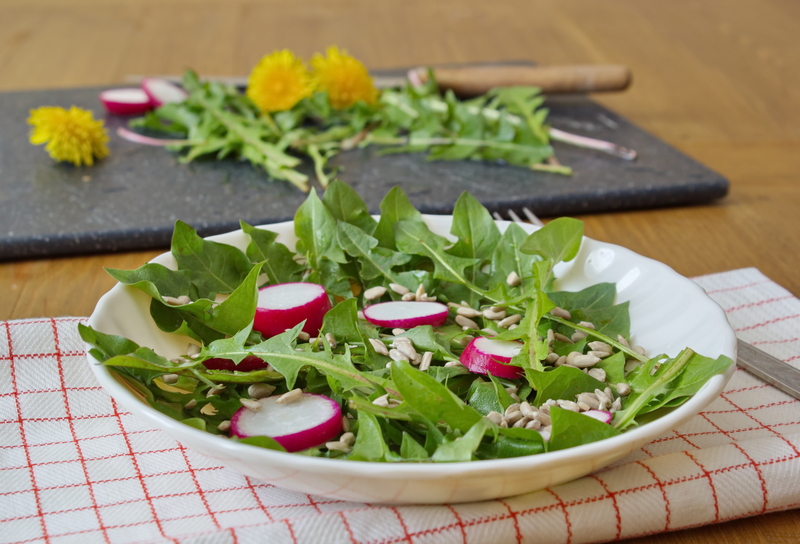Converting Organic Waste into Fertile Soil Marvel
Posted on 18/09/2025
Converting Organic Waste into Fertile Soil Marvel: Revolutionizing Sustainable Agriculture
Have you ever wondered what happens to the vast amounts of organic waste generated daily in our kitchens, gardens, and markets? For centuries, much of this precious material was simply discarded or tossed in landfills. However, as environmental awareness grows, more individuals, communities, and businesses are discovering the transformative potential of converting organic waste into fertile soil marvel. This process not only helps in reducing landfill waste but also generates nutrient-rich compost, rejuvenates agricultural lands, and supports a healthier planet.
What is Organic Waste?
Organic waste refers to any biodegradable material derived from plants or animals. Common examples include:
- Fruit and vegetable peels and scraps
- Coffee grounds and tea bags
- Yard trimmings, leaves, and grass clippings
- Eggshells
- Food leftovers
- Paper towels and napkins (unbleached, uncoated)

Why Converting Organic Waste into Fertile Soil is Essential
The practice of transforming organic waste into fertile soil presents multiple environmental, economic, and social advantages:
- Reduces landfill volumes: Landfills are a leading source of methane, a potent greenhouse gas. Diverting organic waste diminishes this impact.
- Generates sustainable fertilizers: Compost produced from waste replenishes soils without synthetic chemicals.
- Supports local food systems: Urban and rural agriculture benefit from ready access to soil enhancers.
- Improves soil health: Compost increases water retention, microbial diversity, and nutrient content.
- Helps mitigate climate change: Sequestering carbon in the soil aids in reducing atmospheric CO2.
Understanding Composting: The Heart of Organic Waste Conversion
At the core of converting organic waste into fertile soil is the ancient practice of composting. Composting is a controlled, natural process that turns organic matter into a dark, crumbly fertilizer known as humus. With the right balance of materials, moisture, air, and microbial activity, this conversion can take place in your backyard or at large municipal facilities.
Types of Organic Waste Conversion Methods
Innovative technologies and traditional methods alike play a role in transforming organic waste. The primary techniques include:
- Backyard Composting: Using simple bins or piles, individuals and families can manage their food and garden waste at home. This method is low-cost yet highly effective with routine care.
- Vermicomposting: Specialized earthworms, especially red wigglers, feed on organic matter, accelerating decomposition and producing exceptionally nutrient-rich compost called "worm castings."
- Bokashi Fermentation: An anaerobic (oxygen-free) method that pre-ferments food waste using microbial inoculants. Particularly effective for dairy, meat, and cooked foods that standard composting may not handle well.
- Industrial/Community Composting: Large-scale aerobic or in-vessel systems process tons of organic waste in municipalities, restaurants, and farms, providing a consistent supply of fertile soil amendments.
- Black Soldier Fly Larvae Conversion: These insects quickly consume food and agricultural waste, converting it into protein (for animal feed) and nutrient-rich residue for soil.
Step-by-Step Guide to Converting Organic Waste into Fertile Soil
Here's how you can harness the power of organic waste change in your own home, garden, or community:
1. Collecting and Sorting Organic Waste
Begin by identifying which materials are compostable. Generally, you want a mix of "greens" (nitrogen-rich items like fruit scraps, coffee grounds, or grass clippings) and "browns" (carbon-rich items such as dry leaves, straw, or shredded newspaper).
- DO compost: Fresh produce trimmings, coffee grinds, eggshells, plant debris, used paper towels.
- DON'T compost: Meat, bones, dairy (unless using Bokashi), diseased plants, greasy or oily foods, synthetic products.
2. Building Your Compost System
Choose a composting method suited to your needs and available space:
- Outdoor bins: Wooden or plastic composters with ventilation and access doors are widely available.
- Compost tumbler: Enclosed rotating containers, perfect for faster results and pest prevention.
- Pile method: Simply heap materials in a designated spot, layering greens and browns alternately.
- Vermicomposting: Use a specially designed worm bin within your home, garage, or shed.
3. Managing the Compost Process
Two fundamental factors define successful composting: a balanced carbon-to-nitrogen ratio and sufficient aeration and moisture. Aim for a ratio of approximately 30:1 (carbon:nitrogen), add water as needed to keep compost "damp like a wrung sponge," and turn or aerate the pile weekly to supply oxygen.
- Signs of healthy compost: Warm temperature, earthy smell, and gradual decomposition.
- Avoid: Overly wet piles (bad odor, sluggish breakdown) or piles that are too dry (slow decomposition).
4. Harvesting and Using Your Fertile Soil Marvel
When your composted material is dark, crumbly, and smells sweetly of earth, it is ready to go.
- Screen or sift finished compost to remove larger unbroken objects.
- Use compost to enrich garden beds, lawns, potted plants, or as a top dressing for trees and shrubs.
- Mix with native soil or potting blends to maximize its benefits.
The Marvels of Organic Waste Conversion: Environmental and Economic Benefits
Let's summarize some of the most astonishing impacts of turning food scraps and yard debris into living soil:
- Landfill reduction: Organic waste can constitute up to 40% of household garbage. Composting diverts this to beneficial reuse.
- Soil restoration: Erosion, compaction, and declining nutrients threaten global food systems. Quality compost rebuilds organic matter.
- Natural fertilizer: Nutrient recycling curbs the need for industrial fertilizers with fossil fuel and mining footprints.
- Carbon sequestration: Compost locks carbon into soil, helping to combat global warming.
- Job creation: The composting industry supports local employment in collection, processing, sales, and distribution.
Challenges and Solutions in Organic Waste Conversion
Despite its vast potential, organic waste recycling faces some hurdles. These include:
- Lack of awareness and separation: Not everyone is informed or willing to segregate waste at the source.
- Odor and pest management: Poorly managed piles or bins can attract unwanted vermin or emit smells.
- Contamination: Mixing organic waste with plastics, glass, or hazardous items can spoil the compost.
- Collection logistics: Urban centers may struggle with the infrastructure for separate organic collection.
Innovations in Organic Waste to Fertile Soil Technologies
Modern science and technology are revolutionizing how we handle organic residues:
- In-vessel composting: Automated, odor-controlled systems speed up decomposition, suitable for urban areas.
- Biochar production: Pyrolysis converts organic matter to charcoal, improving soil fertility and storing carbon for centuries.
- Smart compost sensors: Internet-connected devices monitor real-time temperature, moisture, and microbial activity for peak efficiency.
- Community compost hubs: Shared urban centers processing neighborhood food scraps and distributing compost locally.
The Future of Fertile Soil from Organic Residues
As populations grow and climates shift, the need for sustainable, productive soils intensifies. Converting organic waste into fertile soil is quickly becoming a pillar of regenerative agriculture and urban sustainability. With stronger policies, investments, and cultural shifts toward circularity, billions of tons of waste could be redirected to restore and regenerate soils across the globe.

How You Can Help: Start Your Organic Waste Conversion Journey Today
Getting involved is simple, impactful, and often fun for individuals and families:
- Start saving your kitchen and yard organics in a bin or bag.
- Research composting options suited to your space and climate.
- Join a community garden or composting co-op in your neighborhood.
- Advocate for curbside organic pickup in your city or town.
- Share your knowledge: Spread the word about the marvel of turning waste into soil with friends, schools, and workplaces!
Conclusion: Embrace the Marvel--Turn Organic Waste into Fertile Soil for a Better World
Choosing to convert organic waste into fertile soil marvels is one of the most accessible and rewarding actions for individuals, families, and communities alike. This simple commitment cuts waste, enriches your garden, supports food security, and contributes to the stewardship of our planet. Whether you have a backyard or just a small balcony, every banana peel, leaf, or coffee ground saved makes a difference.
Start your organic waste conversion journey today. Transform trash into treasure--grow life from leftovers and help build a greener, more sustainable world!
Latest Posts
Crafting a Magical Outdoor Space for Children to Explore
Explore ways your garden can become a climate change ally
Converting Organic Waste into Fertile Soil Marvel

